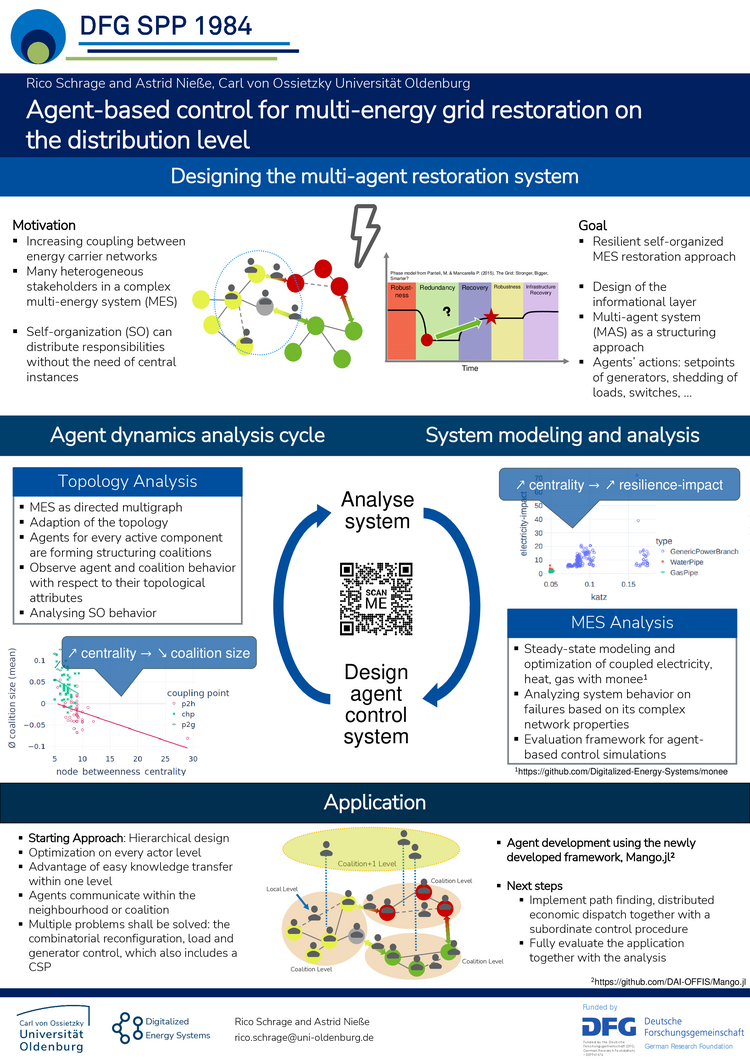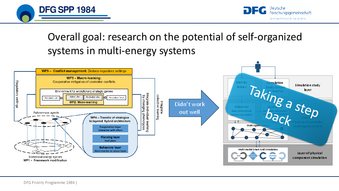CoCo: Mitigation of Emerging Controller Conflicts in Multimodal Smart Energy Systems

Contact
Head
CoCo: Mitigation of Emerging Controller Conflicts in Multimodal Smart Energy Systems
Project Background
Publications
- Schrage, Rico and Nieße Astrid (2024). From Coupling to Resilience: Quantifying the Impact of Interconnection in Energy Carrier Grids, arXiv, arXiv:2407.01256 (Preprint)
- Schrage, Rico., Sager, Jens., Hörding, J. P., & Holly, Stefanie (2024). mango: A modular python-based agent simulation framework. SoftwareX, 27, 101791.
- Schrage, Rico (2023): The Role of Coupling Points for Self-Organized Multi-Energy Grid Operation. In: Abstracts of the 12th DACH+ Conference on Energy Informatics 2023 (6), S. 14–16.
- Schrage, Rico; Nieße, Astrid (2023): Influence of adaptive coupling points on coalition formation in multi-energy systems. In: Appl Netw Sci 8 (1). DOI: 10.1007/s41109-023-00553-8.
- Schrage, Rico; Tiemann, Paul Hendrik; Nieße, Astrid (2022): A Multi-Criteria Metaheuristic Algorithm for Distributed Optimization of Electric Energy Storage. In: SIGEnergy Energy Informatics Review 2 (4), S. 44–59. DOI: 10.1145/3584024.3584029.
Publications from the previous phase
- Shahbakhsh, Arash; Nieße, Astrid (2020): Agent Based Modeling in Energy Systems. Parametrization of Coupling Points. In: International Federation of Automatic Control.
- Shahbakhsh, Arash; Nieße, Astrid (2019): Modeling multimodal energy systems. In: at-Automatisierungstechnik 67 (11), S. 893–903.
- Nieße, Astrid; Shahbakhsh, Arash (2018): Analyzing controller conflicts in multimodal smart grids - framework design. In: Energy Informatics, 1.
Software artifacts
The following software artifacts are fully or partially results of this project:
- monee: Framework for calculating the steady-state energy flow and for solving optimization problems in coupled energy grids (gas, heat, electricity) – github.com/Digitalized-Energy-Systems/monee (entirely developed for the project)
- Mango.jl: A modular framework for the rapid development of fast agent systems in Julia – github.com/OFFIS-DAI/Mango.jl, developed in collaboration with OFFIS e.V.
- mango: A modular python-based agent simulation framework – github.com/OFFIS-DAI/mango, mainly developed at the OFFIS e.V. (majorly contributed to)


